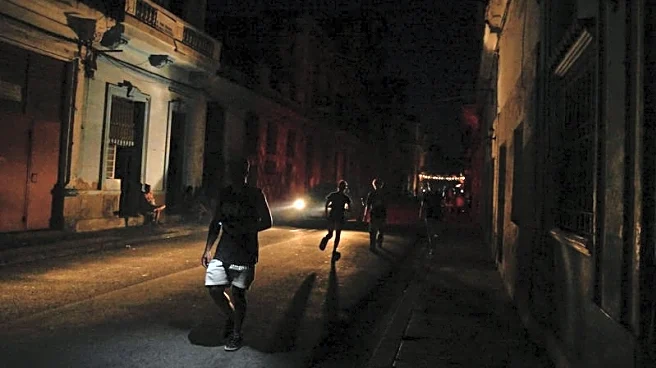By Marc Frank and Nelson Acosta
HAVANA (Reuters) -The Cuban Energy and Mining Ministry said on Thursday 80% of the capital, Havana, had power and most of the country's energy grid had been reestablished 24 hours after it crashed, leaving 9.7 million residents in the dark.
"Electricity coverage has been increasing, and we are generating approximately 1000 Megawatts (MW) that will increase today," the ministry's electricity director Lazaro Guerra said during a morning state television broadcast.
"The
restoration process is going well. ... We are in the concluding stage of the restoration of the electrical system," he said.
POWER SYSTEM IN A LONG-TERM CRISIS
That system has been in crisis for years and has an effective capacity of just under 2000 megawatts and a national demand of over 3,000 MW.
Even before Wednesday's collapse the vast majority of residents were experiencing daily blackouts of 16 hours or more.
Cuba's oil-fired power plants, already obsolete and struggling to keep the lights on, reached a full crisis last year as oil imports from Venezuela, Russia and Mexico dwindled.
The grid failure follows four nationwide blackouts since late last year.
Communist Party authorities have launched a crash program with China to install 1000 MW of solar power this year and another 1,000 MW after that.
The country has also been facing fuel, food and other shortages as part of its worst economic crisis in decades.
"The electrical system seems to be going through a very difficult situation, but we think ... measures can be taken that may contribute to an improvement," said Sergio Serrano, a self-employed Havana resident.
Housewife Thalia Martinez was not so sure.
"I don't understand what the state is doing about it. ... It is the people who suffer, the children, the mothers, the grandparents, the elderly, and that is super bad," she said.
(Reporting by Marc Frank and Nelson Acosta; Additional reporting by Mario Fuentes; Editing by Richard Chang)















